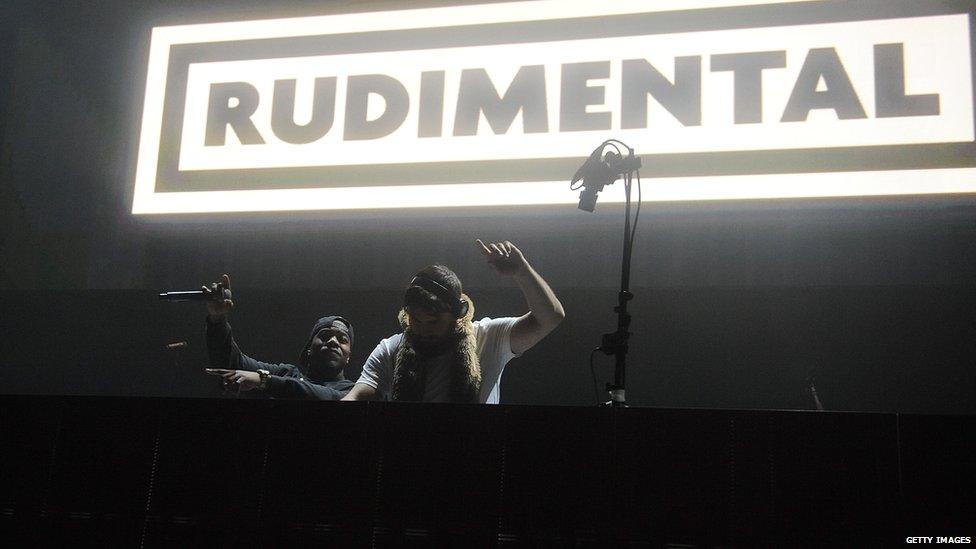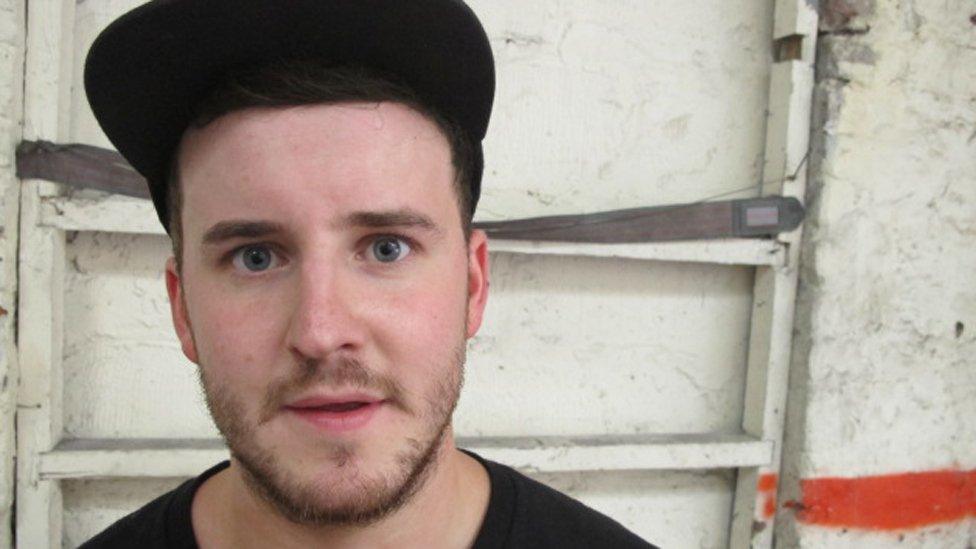UK nightclubs closing at 'alarming rate', industry figures suggest
- Published
Watch Newsbeat's short documentary Where Have All The Clubs Gone?, external
Nearly half the UK's nightclubs have shut their doors in just 10 years, according to figures seen by Newsbeat.
The Association of Licensed Multiple Retailers (ALMR), which represents venues, says in 2005 there were 3,144 clubs and this is now down to 1,733.
Chief Executive Kate Nicholls reckons that in some towns "they are gone for good and we're never going to get them back".
But people like Rudimental have told us that clubbing trends "go in cycles".
The ALMR warns the closures will leave the UK worse off "culturally, socially and economically".
It classes a club as a place meant for "late night entertainment, usually music and dancing".
Ministry of Sound is an iconic name in clubbing, where many of the great DJs of the 1980s and 1990s made their names.
But its boss, Lohan Presencer, agrees that UK clubbing is in a "challenging place" in 2015.
"I don't think the number of people going clubbing at the weekend is any different to where it was 20 years ago, but I do think they are going to different places," he told Newsbeat.
"With the advent of later pub opening hours, the smoking ban, student tuition fees and the squeeze that a lot people are under financially since the recession," he explains, "I think people are finding different ways and different places to go out."
One of those alternatives is festivals which are increasingly big business when it comes to live music and now the DJ scene too.

Rudimental are headlining festivals around the UK and Europe this summer - and they run their own event too.
So are festivals killing club culture?
"It kind of goes in cycles," reckons Amir, producer and DJ in the London drum and bass group.
"I mean there was a hell of a lot of clubs out there and a lot of DJs - and now there are DJs on the main stage at festivals.
"They're essentially still playing house music so it just shifts in cycles and it will go back into the club."
Club owners argue that without smaller clubs young DJs and promoters won't have anywhere to learn their trade.

Steve Aoki tours some of the biggest venues in the world and agrees that clubs are vital for dance music to evolve.
"Clubs are incredibly important. This is where the culture has thrived and grown.
"Without those clubs there wouldn't be those new sounds and new sub genres."
There are also concerns from club representatives about the effect the closures will have on youth employment.
The ALMR say that last year the venues it represents "generated 37,000 new jobs with over 80% of these for 18-24 year olds".
Kate Nicholls says that planning and licensing rules are the reason for some of the closures.
She believes it's become too easy for neighbours to complain if they live nearby - even if the venue was there before they moved in.
"People want to have their cake and eat it. [If] you want vibe and to live in a cool area, then you need the other, edgier side of it."
A government spokesperson told Newsbeat: "We know the important contribution the sector makes to our economy and the nation's cultural landscape.
"The current regulations strike a fair balance between making sure we have music entertainment for the public and preventing crime and disorder, whilst keeping the public safe."
The shift away from the high street has seen some young promoters begin to put on nights at industrial locations, something which happened 20 years ago when the rave scene moved clubbing out of city centres.

"We moved away from running nights in the standard club settings and instead utilise different spaces," says Hugo Monypenny, who runs Selective Hearing, a Manchester and Leeds-based night.
That means garages, disused furniture warehouses and industrial estates.
"The joy of it is going to a space that you would never expect to go and dance in," he says.
"The big clubs aren't as much fun for me because they are so regimented and there are so many rules.
"People are being drawn away from the big events because there is no intimacy there."
Read more from Hugo and other young promoters offering alternatives to traditional nightclubs.
Follow @BBCNewsbeat, external on Twitter, BBCNewsbeat, external on Instagram, Radio1Newsbeat, external on YouTube and you can now follow BBC_Newsbeat on Snapchat